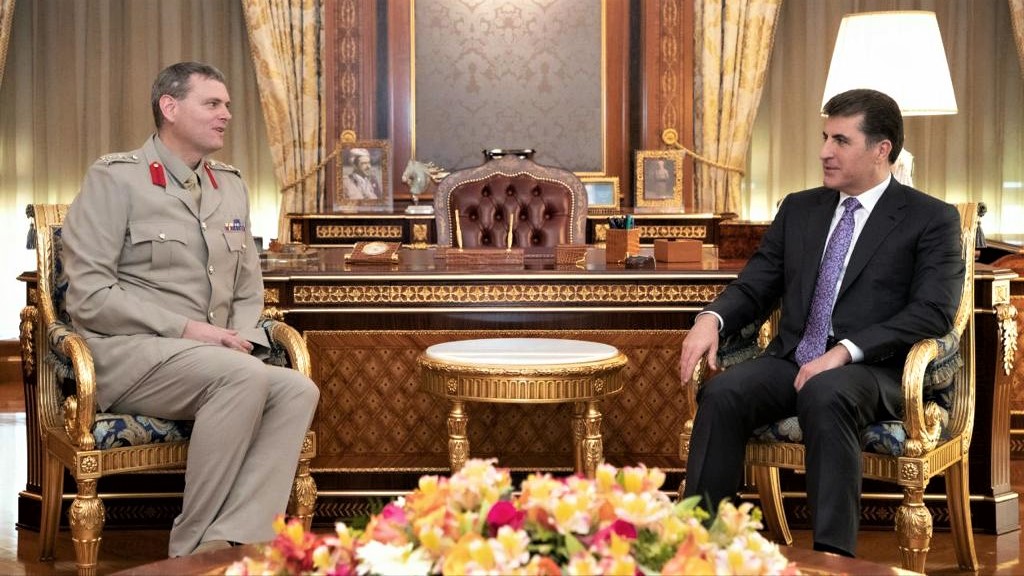Deputy commander of US-led coalition vows continued support for Kurdistan Region Peshmerga

ERBIL (Kurdistan 24) - UK Brigadier Richard Bell, Deputy Commander of the US-led Coalition to Defeat ISIS in Iraq and Syria said in an exclusive statement to Kurdistan 24 that the Coalition will continue its support of the autonomous Kurdistan Region’s Peshmerga forces.
“They have fought hard on behalf of the people of Iraq to defeat Daesh (ISIS) and continue to do so against the final remnants of Daesh,” he said.
“You can see the overwhelming pride the population has in their security forces because they deliver them the security that allows them to go to work, to go to school, and to have a normal life either here in Erbil or across the Kurdish Region of Iraq more broadly,” he continued, adding, “Together, we remain united and resolved to achieve the enduring defeat of Daesh and regional stability.”
Colonel David Williams, outgoing director of the Kurdistan Coordination Center (KCC), told Kurdistan 24 on Friday that the coalition is looking to support Peshmerga forces for at least another one or two, including additional allotments as well.
“Every month we provide $20 million dollars in stipends, along with fuel and food,” he said.
Read More: Outgoing KCC director: attacks won’t break 30-year US-Kurdistan relationship
Moreover, the Ministry of Peshmerga is scheduled to receive about 12 brigades’ worth of equipment on top of that, including Humvees, radios, and weapons.
The ministry tweeted on Wednesday that it had just received other material assistance from the coalition, consisting of a number of tankers, vehicle equipment, and military logistics equipment.
After Bell met with Kurdistan Region President Nechirvan Barzani, also on Wednesday, a statement from Barzani's office read, “Discussions focused on the latest developments in the fight against terrorism and the threats posed by ISIS in Iraq and Syria. Cooperation and coordination between the Peshmerga and Iraq’s army and the mission of the International Coalition against ISIS were underlined.”
Bell also reportedly stressed the importance of coordination and cooperation between the Peshmerga and the Iraqi military in the fight against ISIS, especially in territories disputed by Baghdad and Erbil where the extremist organization has exploited security gaps between federal and regional forces.
In a harsh response to the Kurdistan Region's 2017 independence referendum, Iraqi forces and Iranian-backed militias of the Popular Mobilization Forces (PMF) pushed the Peshmerga from disputed territories. Since then, the areas have suffered from a lack of unified military strategy across large tracts of land ranging from Khanaqin in central Diyala province to Kirkuk and northward to multiple areas surrounding Mosul.
Recently, four out of six joint coordination centers have been completed in different regions, following initial Baghdad-Erbil talks on their establishment in the town of Makhmour and other locations in Kirkuk, Diyala, and Nineveh provinces, which has earned praise from the coalition.
There are also plans to form additional joint Peshmerga-Iraqi brigades to counter the threat of ISIS.
The presidential statement concluded by explaining that Bell and Barzani had stressed “the need and significance of partnership and coordination among Iraq, the Kurdistan Region, and the International Coalition to eliminate ISIS and secure peace and stability in the country.”
Editing by John J. Catherine
